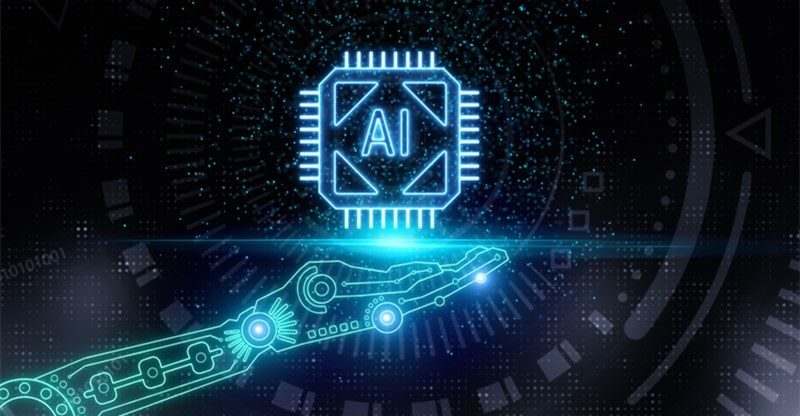How Does AI Impact The Software Development Industry?
The current decade has been a golden era for the software development industry. Between the inception of several rapid prototyping tools expediting the development speed and the integrations of next-gen technologies like IoT, Blockchain, and platform engineering (duplocloud.com/blog/what-is-platform-engineering), etc. making the domain a notable sector, software development has witnessed a transformation.
To take the sector’s excellency further up a notch, the industry experts are now finding ways to incorporate Artificial Intelligence in the otherwise traditional approaches.
AI in software development is a discussion that is becoming mainstream in almost every boardroom meeting around increasing business efficiency. The technology, with the support of its sub-technologies like Machine Learning, Natural language processing, etc. is giving IT companies an ability to re-invent and transform their operation models considerably.
Here are some of the ways AI is poised to impact or change the software development domain for the good.
The Impact of AI on Software Development
1. Requirement Gathering
It is a process where we need human intervention most. Irrespective of which industry you belong to, paying attention to the customers’ needs is the first important consideration you take when starting a new business.
At present, the SDLC process starts with a software engineer discussing the software prerequisites and coming up with a list of features and requirements.
With the inclusion of Machine Learning and NLP, developers’ tasks will be a lot more precise. Their task will revolve around the collection of sector-specific data and feeding them into machine learning algorithms. The approach when followed with consistency will lead to AI becoming capable of identifying software features important to the users.
2. Smart Coding Assistants
If we sit down to evaluate and list down the top activities that take up the most of a developer’s time in a day, the one that would top the list would be the time spent on surfing the product documentation. AI-powered assistants specifically for programmers can bring a series of positive changes in this regard.
With the help of AI assistants, developers can get access to real-time recommendations on code documents and even advise on the best practices for a particular use case. Some of the best tools working on this front are Kite, Codota, etc. The sign of how truly beneficial smart coding assistants are lies in the fact that the sector has raised over 704 million US dollars in 2019 alone.
3. Quick Prototyping
One of the primary reasons for delayed project delivery is the inability of mobile app development agencies to provide the working prototype of the solution in time to convince their clients. To counter this issue, for the past many years the industry has been in dire need of faster and smarter mechanisms for prototype development.
As part of the solution, several smart artificial intelligence platforms have been launched. These tools are designed to help the solution architects map out the business functionality in a technical prototype. And the time it takes for these tools to operate, as opposed to the weeks or months that a manual process generally takes, is only some minutes or hours.
4. Error Management Automation
As a general practice, when a code error is found in software the developer deep dives into the structure to investigate the issue. The process, although fine in nature, can be error-prone and time-consuming.
The integration of AI at this stage of the software development life cycle can help detect and repair code errors without the developers’ involvement. Moreover, AI-powered algorithms can help predict and prevent errors by searching through the databases and uncovering abnormalities, and suggesting steps that the developers can take for avoiding them.
5. Real-time Customer Feedback
AI algorithms enable the software to understand how users behave and respond to in-app actions. This, in turn, helps developers in serving the users a variable content type, adjusting on-page elements, and offering them a dynamic experience that is driven by real-time user data.
This functionality, mixed with a constant feedback cycle, helps smooth out the friction points in critical areas. This ultimately results in an increased conversion rate, low abandonment rate, and in the end, the development of accessible software.
6. Efficient Software Testing
One of the most promising areas of artificial intelligence in the SDLC process can be seen in the app testing or quality assurance stage.
Right from analyzing the code for bugs and errors to ensuring sanity checks on the running environments, AI-powered platforms can help the QA experts work on more critical tasks in place of being engaged in routine jobs.
7. Accurate Project Estimations
One of the most crucial parts of any software development process is the planning of deadlines and budget. But sadly this is also one of the most difficult to follow through tasks. AI comes with the promise of helping in the creation of precise predictions and estimates.
By using data from previous projects’ feedback, feature sets, estimates, and the final results, machine learning can help with the estimation of the time and cost of developing a product almost accurately. Experts of machine learning services can have an important role in this area.
Now that we have looked into the impact that AI is bound to leave on the software development process let us turn our attention towards some of the best-in-class AI-backed software tools.
The Best AI Software Development Platforms
• Tensorflow – It is an open-source computational tool that is used for production and research. It uses a multilayered hub arrangement enabling developers to rapidly set train and then send neural systems containing massive datasets.
• H2O.AI – it is a business-oriented AI software that helps developers make decisions on the basis of users’ data and insights. The tool is most commonly brought into use for fraud and risk analysis, predictive modeling, advertising technology, and customer intelligence.
• Infosys NIA – when Infosys launched Nia, they ideated a platform to gather organization data present on the legacy systems and convert it into a self-learning knowledge base. The platform stands true to its inception goal. The software developers can then arrange the data for developing scalable and high-performing machine learning models.
With this, we have looked at the ways and reinstated the notion that the mobile app development industry is only going to get more efficient in the time to come with the inclusion of AI technology.
In what other ways do you think the software development industry is going to get better with AI inclusion? Share your views on social media through the buttons.



